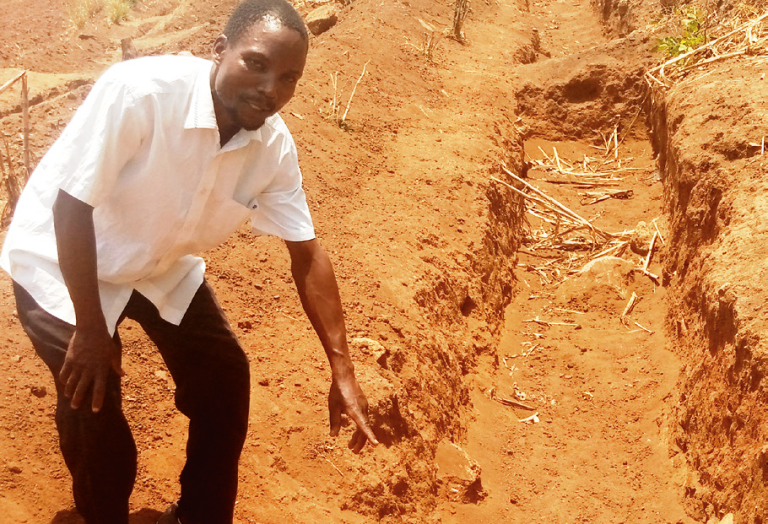WFP boosts farmers’ resilience
As the rainy season kicks in, Mwayiwao Frank of Nampate Village in Machinga has seven bags of maize, enough to feed her family of six until the next harvest.
Last growing season, the farmer harvested 23 bags on a field that used to produce just five.

“The previous harvests were not enough to beat perennial hunger,” she recalls, blaming the low food production on barren soils, runoffs, prolonged dry spells and lack of fertilisers.
Deforestation and resultant soil erosion have worsened the vulnerability of farmers surrounding Chinduzi Hills amid climate change.
James Mposowa says running rainwater often damaged crops and houses in the remote locality under Traditional Authority Nkula. Most often, they had to replant as the first crop wilted in scorching sunshine.
“We rarely had adequate food,” he says.
World Food Programme (WFP), a United Nations (UN) agency that fights hunger, reports that rampant environmental degradation makes Malawi prone to climate-related disasters, especially drought and flood, which erode their resilience and traps them in hunger and poverty.
However, the harvests in Frank’s village are on the rise. The mother of three attributes the rising crop yields and resilience to watershed management activities rolled out by WFP.
Since 2019, the communities have constructed rain harvesting structures such as swales, deep trenches, check dams and eyebrows on the slopes of Chinduzi Hills, open spaces and their fields. They have also planted trees on bare spots and left stumps to regenerate.
Mposowa says the land conservation has strengthened their resilience to climate change.
“The runoffs and floods are history because the watershed management structures trap rainwater. They reduce soil erosion and enhance retention of water in the soil for our crops.”
Through the Integrated Resilience Programme funded by the USaid Bureau for Humanitarian Assistance, WFP in partnership with Plan International Malawi are working with 10 180 households in traditional authorities (T/As) Nsanama, Liwonde, Chikweo, and Nkula in the district.
The target communities have also embraced climate-smart agriculture, including mulching and manure use which help crops withstand harsh weather such as drought and dry spells.
Mposowa’s maize field, the size of a football ground, now yields 30 bags.
Manure production has weaned her from scrambling for the State-subsidised fertlisers under the Affordable Inputs Programme (AIP).
The farmer says manure has become a trusted solution to shortage of fertilisers and barren soils.
He brags: “I make the manure using locally available materials and I don’t regret not benefitting from AIP.
“Manure restores soil fertility and hold moisture long enough for the good of my crops.”
The manure comprises a mix of three 15-litre bucket of dung, one bucket of ash, dead plants and 10-litres of water.
The farmers also access timely climate and weather forecasts as well as tips on suitable crop varieties for their zone.
To restore and sustain forest cover, the communities use firewood-saving stoves that emit less smoke.
Frank says the stoves promote environmental well-being and human health.
Group village head Chingoli says: “We have realised the importance of conserving the environment for sustainable development.
“We have set forestry by-laws to support the environmental conservation efforts that have improved our crop production and resilience.”
WFP country deputy director Marco Cavalcante and Plan International Malawi facilitator John Mwahala are pleased that the communities own the interventions to be resilient.
Cavalcante says the UN agency is committed to stirring interventions that improve food security and livelihoods.
“We are impressed with the improvement in livelihoods, creation of healthier natural environments, reduction of the impacts of shocks and strengthening of their resilience to natural disasters,” he states.





